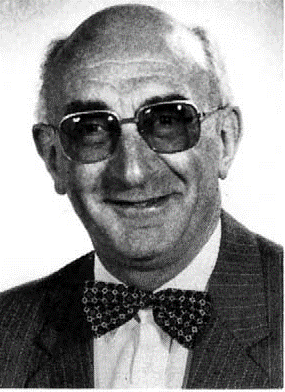
Harry Marsh

Henry H. Storch Award in Fuel Chemistry sponsored by Exxon Research & Engineering Co. HARRY MARSH, educator and researcher, has contributed substantially to the understanding of coal and carbon chemistry. Marsh is professor of carbon science, department of chemistry, University of Newcastle upon Tyne, U.K., and since 1967 has been director of the university's Northern Carbon Research Laboratories. According to an admiring colleague, "no one presently active in the field of coal chemistry better exemplifies the principles and skills of the late Henry H. Storch than does Harry Marsh." His research accomplishments can be categorized into three major areas, all relating to the formation and chacterization of cokes and carbons from coal and other organic materials: mechanisms of carbonization and graphitization of organic substances; characterization of resultant carbonaceous materials such as cokes, chars, and graphites; and gasification reactions of carbonaceous materials. In the area of carbonization, Marsh has been responsible for recognizing the role of mesophase (nematic crystals) in the conversion of coal to coke. A long series of papers, beginning in 1973, has elucidated the significance of the phenomenon of mesophase growth on the strength and reactivity of the product coke. His studies on the effects of hydrogen transfer reactions, oxidation of feedstock coals, and alkalies, have also added to the understanding of the carbonization reaction, and industrial coke making has benefited from his research. In the characterization of cokes and carbons, Marsh's studies on the measurement of surface area and porosity have resulted in significantly better probes than were previously possible. Early on, he advocated the use of carbon dioxide in conjunction with the Dubinin/ Radushkevich/Polyani isotherm to measure surface areas of carbons. In addition, his use of microscopy, both light and electron, to characterize coke structures stands as a major contribution. Regarding gasification reactions of carbonaceous materials, Marsh has contributed significantly to relating coke and carbon structures to their reactivity in carbon dioxide and oxygen. He has also clarified the catalytic role of both indigenous and added impurities in the gasification reactions. In 1945 Marsh graduated with a B.S. degree in chemistry from Kings College, University of Durham, U.K., which in 1963 became the University of Newcastle upon Tyne. He also received his Ph.D. there in 1948, and in 1972 the university awarded him a D.Sc. degree. The American Carbon Society awarded Marsh its George Skakel Memorial Award in 1985 for improving interactions between academia and industry. Recently, Marsh has been instrumental in creating a coal club in the U.K. to coordinate industrial needs with the research expertise of academic institutions.